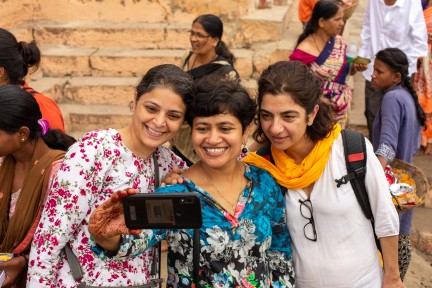Making access plans for all late-stage R&D projects
Date
15 November 2022
Astellas, Boehringer Ingelheim, Johnson & Johnson, Merck, Novartis, Takeda
Low- and middle-income countries (LMICs)
Access planning during the R&D stage
Planning for access for every single late-stage R&D project in scope
To create access plans for all late-stage pipeline candidates (from Phase II onwards) to ensure new products are made swiftly available swiftly in LMICs
Previously, no company had access plans for all late-stage projects. In 2022, six companies have reached the milestone of having access plans for all R&D late-stage projects in scope.
Astellas, Boehringer Ingelheim, Johnson & Johnson, Merck, Novartis and Takeda now demonstrate best practice by implementing access planning for all late-stage R&D projects from Phase II of clinical trials, including planning for access to the product in at least one country in scope of the Index. Other companies, including GSK and Sanofi are not far behind, with plans for most R&D projects.
A first step in access planning is the commitment to registering products in LMICs to ensure they can be made available. Companies must also consider other factors, including ensuring products have sustainable supply chains and are affordable. Takeda and Novartis currently lead in the quality of their access plans.
Takeda, which has a relatively small pipeline compared to the other companies in scope, was recognised in the 2021 Index for a strong project-specific access plan for its dengue vaccine, including a global strategy for filing for registration and a global distribution network. Since then, Takeda has strengthened this access plan as the project has progressed through the pipeline.
Takeda takes a structured approach that considers all elements as early as pre-Phase II. For late-stage candidates, including for non-communicable diseases (NCDs) such as epilepsy and cancer, it takes a systematic approach by considering multiple factors: registration, non-exclusive voluntary licensing, patent waivers, equitable pricing, sufficiency of supply, WHO prequalification, product donations, access through clinical trials and expanded access programmes.
Novartis also excels in the quality of its access plans and, especially, in creating comprehensive plans early in clinical development. It implements plans systematically and gets the process underway for all innovative drug projects by Phase II. In addition, individual access plans include many components specific to a project, for example equitable pricing strategies that are tailored to different markets and plans to use local partnerships to strengthen health systems.
Action needed to increase the quality and depth of access plans
Many companies have developed detailed access plans for R&D projects targeting infectious diseases such as tuberculosis, malaria and HIV, in partnership with access-oriented organisations such as the Drugs for Neglected Diseases initiative or Medicines for Malaria Venture. By comparison, projects targeting NCDs, lacking such support are less likely to be covered by comprehensive access plans. Yet, as the Index’s analysis of the companies’ R&D efforts shows, projects targeting NCDs – especially cancers – dominate the pipeline.
To ensure these products reach the people who need them in LMICs, companies can look to increase the quality and expand the geographic reach of access plans for R&D candidates targeting NCDs. Furthermore, while innovative cancer treatments may require high levels of health practitioner expertise for administration, companies can address with health systems strengthening and capacity building initiatives.
All companies can also make improvements in the geographic scope, quality and depth of their access plans. On average, access plans cover just six of the 108 countries in scope, and most companies focus on registering products in countries where they conduct clinical trials, usually a small cohort of emerging markets such as in Brazil, China, India, Mexico, Thailand and Colombia.

